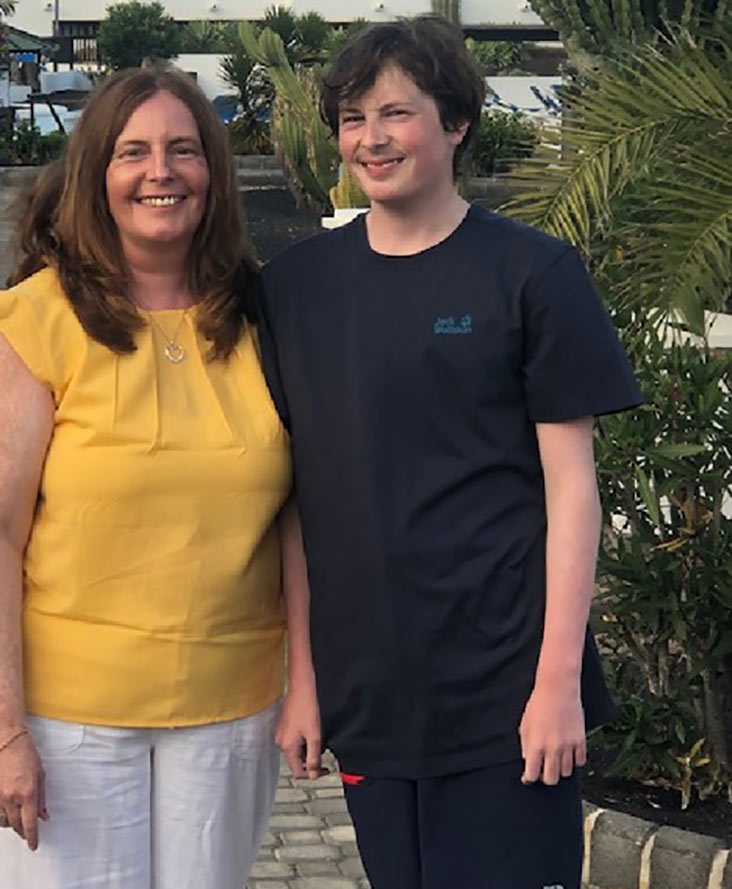Apps are a huge part of everyday life for everyone—in fact, you might not even realise you’re using an app for doing some of the most simple things you do regularly. Checking the weather, messaging friends and family and accessing your bank account are all examples. But beyond this, they are especially useful for parents of children with learning disabilities. They can be educational, fun, or both and they offer a way for parents to take some time to themselves and enjoy hobbies without having to leave the house.
In this article we look at how apps can help both parents and their children, and how they can even make travelling in your Motability Scheme car more fun and enjoyable.
You can find these apps on your mobile on the Apple App Store or Google Play Store.
1. Special iApps
This is a collection of apps created by Beverley and Colin Dean when they couldn’t find the apps they needed to teach their younger son William, who has Down’s syndrome and autism. They found that most apps had too much going on in the background, weren’t configurable or easily personalised and didn’t cater to William’s limited finger skills. Among them, there are apps for learning vocabulary and storytelling.
2. My GP
For booking doctors appointments, My GP is a very handy free app. With this app, you don’t have to log into a more time-consuming booking system or take the time to ring up and make an appointment through reception. Your own GP practice might have even made their own version of the app, so make sure to check on their website.
3. Stop, Breathe & Think
This is an app made to help with anxiety and stress. There are versions for both adults and children, so it can actually be helpful for both parents and their children. The adult version takes you through guided meditation and advanced breathing and the kid’s version takes users through games to help them relax and fall asleep.
4. Voice Dream Reader
This app is fantastic for children and teenagers with reading disabilities and ADHD. It allows you to highlight text which will then be read out loud in a voice that you choose. This is a great way to help a child enjoy the magical world of stories and books, even if their reading skills aren’t so strong.
5. My Talk Tools
This app is used by people with conditions which make communicating difficult or mean that they are nonverbal. It allows the user to say what they want, using a sequence of words, sounds and images. It can be configured to feature certain images and play certain sounds, so it can be personalised for the user.>
6. BrushDJ
This is truly helpful for all children, but especially for those who might put up a particular resistance to tasks such as teeth brushing. This app is a fun way to encourage children to brush their teeth playing one of their favourite songs so they know they’re doing it for the right amount of time. It has even been recommended by the NHS to help children learn dental hygiene early.
7. Hoop
This is a great app for parents, especially during the summer holidays. Users can browse nearby activities for children between 0 and 11 years old, either that same day or in the future. It covers many different activities suiting different abilities and budgets.
8. MeeTwo
This is an app for teenagers to help them talk about difficult things in their lives with other teenagers. All posts are moderated and there are trained people who reply to the more complex posts. Its broader goal is to prevent self-harm and help the users feel like they are supported and not alone. It’s even recommended by the NHS.
Julie’s tips
Sometimes it’s the simplest apps which can help your child. Motability Scheme customer Julie Simpson whose son Joe is 15 and has autism, says he uses apps on his iPad which, while not designed specifically for children with learning disabilities, keep him happy and occupied on long car journeys.
“Google maps keeps Joe occupied for ages. He loves putting people we knows postcodes into them and then looking them up. He also likes going on the YouTube app to entertain himself with videos.
“When we go on long car journeys, say on holiday, his iPad can keep him occupied for the whole journey. It’s vital to charge it before we go and we also have a battery pack we carry at all times in the car.
“He doesn’t have WiFi on his iPad so we tether it to my iPhone so he gets WiFi that way. We’ll also download films for him to watch on his iPad if we’re going on a plane journey.
“And in restaurants where Joe finds it hard to sit still for long, an iPad can keep him occupied.”>
When Joe was little and non-verbal, Julie downloaded an educational learning skills app from the USA which involved people talking and doing exercises for children with special needs. “That’s how we got him to communicate. It’s a really good tool and he loved it. Though he ended up with an American accent as that’s how he learned to speak!”>
If your child has a disability, you might be eligible to join the Motability Scheme on their behalf and get the benefits of a new car every three years, with insurance for two named drivers and much more. Find out more information about how parents and carers can become customers.
Related articles
Travel apps for people with disabilities
Everyday tips that make getting out and about easier for disabled people
How the Motability Scheme can help if you care for someone with autism
![]()









